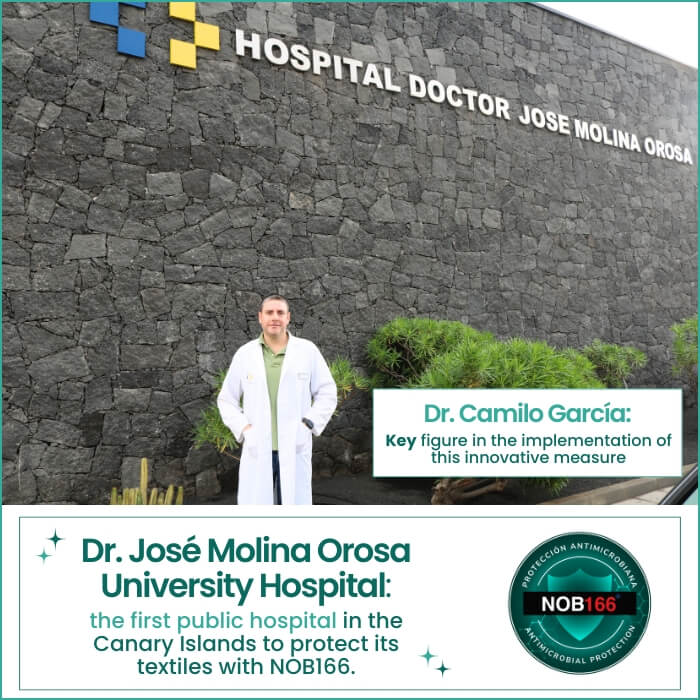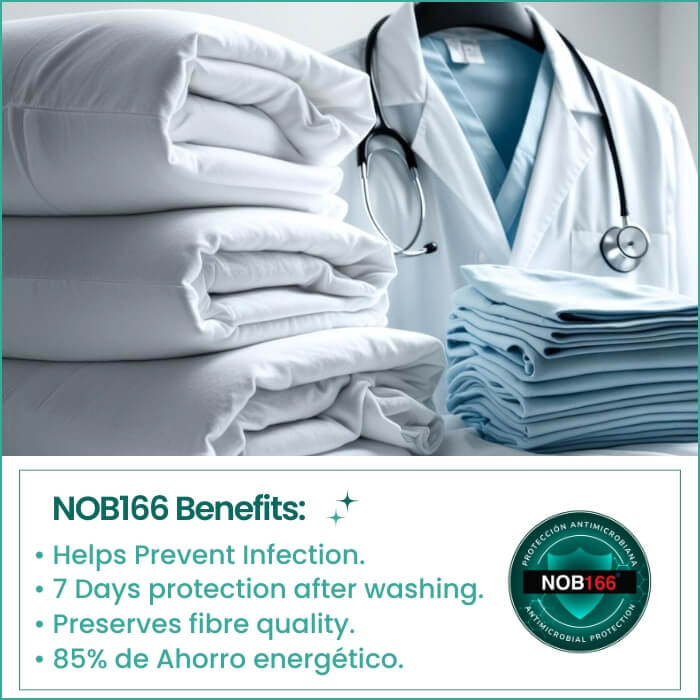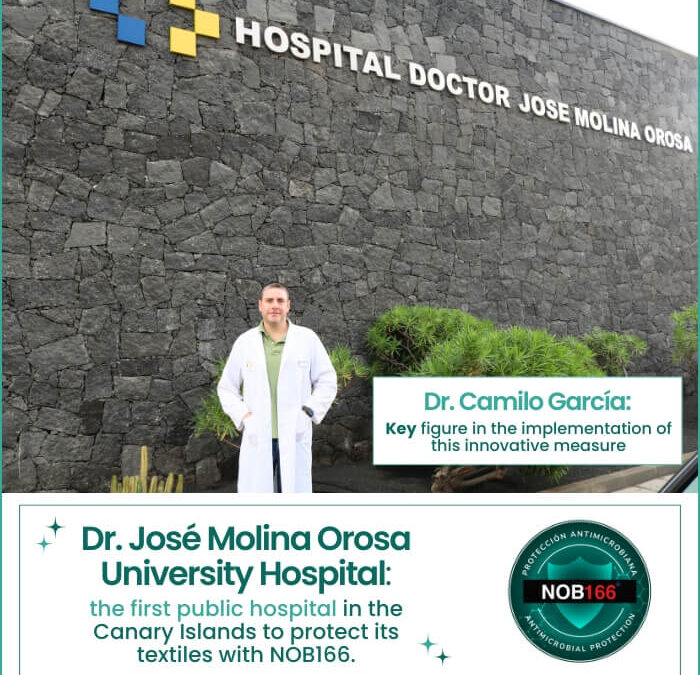
Reusable Surgical Gown: Savings and Sustainability
3 de November de 2023
Juan Roig’s Lanzadera Programme: Our experience
26 de March de 2025Dr. José Molina Orosa University Hospital in Lanzarote incorporates in its laundry, through its supplier Guerra y Fernández, the requirement of textile antimicrobial protection after washing with NOB166 technology. This advance has the objective of reinforcing the prevention of nosocomial infections, a priority challenge for the healthcare sector.
Camilo García, specialist in Preventive Medicine and Public Health at the Dr. José Molina Orosa University Hospital in Lanzarote, Coordinator of the Environmental Biosafety and Hygiene Studies Committee of the Spanish Society of Preventive Medicine, Public Health and Health Management and Vice President of the Canary Islands Society of Hospital Preventive Medicine, has been a key figure in the implementation of this innovative measure.

Gracias a su visión y compromiso con la seguridad de los pacientes, el hospital se posiciona como un referente en la adopción de estrategias adecuadas para el control de infecciones, marcando un precedente en el ámbito de la salud pública.
Thanks to its vision and commitment to patient safety, the hospital has positioned itself as a benchmark in the adoption of appropriate infection control strategies, setting a precedent in public health.
Statements by Dr. Camilo Garcia on NOB166 textile protection
According to Camilo Garcia: ‘The protection of textiles used by our patients and workers is essential to reduce the risks associated with the transmission of microorganisms in hospitals. This innovative approach and technology reinforces our commitment to the health and well-being of the entire hospital community.
Textiles, such as bed linen, towels, pyjamas and work uniforms, among others, represent one of the main vectors for the transmission of microorganisms, as they are in constant contact with patients and healthcare workers. Textiles that are not treated with antimicrobial protection are exposed to pathogen contamination after washing, contributing to the spread of nosocomial infections.

Benefits of NOB166 antimicrobial technology in hospital textiles
These infections, acquired during hospital stays, represent a significant threat to public health, complicating the recovery process, prolonging hospital stays and generating additional costs for the healthcare system.
Textiles treated with NOB166 antimicrobial technology have properties that help to keep them in optimal condition for longer, preventing the proliferation of microorganisms. In addition, this solution helps to preserve the quality of the fibres and works in both hot and cold water.
Another outstanding benefit is the neutralisation of unpleasant odours, a key aspect in healthcare settings, where the focus remains on comfort, cleanliness and a pleasant atmosphere. NOB166 antimicrobial effect is prolonged for 7 days after washing, increasing safety and optimising resources.
With this innovative initiative, the Dr. José Molina Orosa University Hospital of Lanzarote not only reinforces health safety measures, but also positions itself as a benchmark in implementing long-lasting technological solutions to prevent and provide comprehensive care for its patients and workers.
